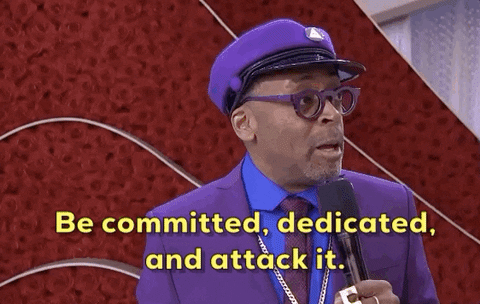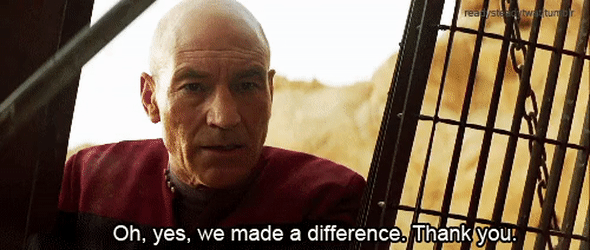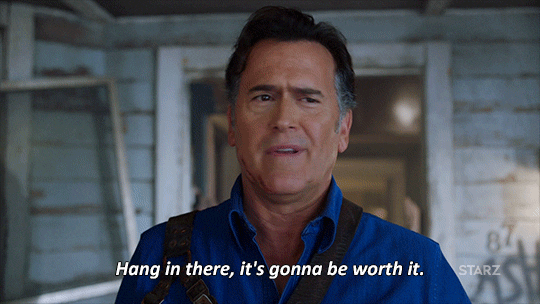One of my favorite things about working in student affairs is that no matter what position I accept, I know there will be cool professionals to befriend at the institution.
I’ve been lucky to have some of the kindest work besties. Not only do these relationships help me weather difficult personal times (hello COVID-19-anxiety while pregnant!), but they also set me up to collaborate well with professionals all across campus.
The ideal work besties not only invite you to their weddings or baby showers; they also challenge and support you professionally. When you frame relationship-building as a type of intentional networking, you’ll build collaborative relationships that will fulfill you and your bestie both personally and professionally.
4 Things to do
1. Challenge and support
Being a good work bestie means committing to your friendship during and beyond work hours.

It’s not a mistake that my first piece of advice aligns with everyone’s favorite student development expression: Challenge and support. To be a good work bestie, it’s important to support and challenge your coworkers.
You can do this by attending their work events and volunteering to help run or plan their biggest programs. If they write a publication, share it with your team. Give them public compliments on a job well done in staff meetings. Or, if they’ve got a big event or project coming up, ask them how you can best support their efforts. Whenever I can, I sign up to help my work bestie at orientation events, and she often promotes and attends the events I run.
Support your coworkers in their personal lives as well. Celebrate the big moments with them by sending them cards or small gifts. Be intentional about meeting off-campus year-round, even when your calendar is super hectic.
On the flip side, challenging a friend can be difficult, but it’s not synonymous with contradicting them. For example, if they seem stuck on a work issue, ask them if they will be thinking about the issue in a month’s time.
You can also use “I” statements to help them reframe what they are ruminating on. For example, you might say “I feel like your supervisor might be a little stressed out. I wonder if that’s what is making it seem like they are upset with you.”
You can also help your work bestie reframe their thinking. Mine checks in whenever I’m in a rut, especially as it relates to workplace anxieties and fears. For example, if something happens at a high institutional-level that could impact all staff, she will remind me that our roles are student-facing and unlikely to face budget cuts.
Whenever my work bestie reminds me that my anxiety is running the show, I can move on with my day in more productive ways. You can help your work besties manage their struggles by checking in, helping them to reframe situations, and reminding them of the bigger picture.
2. Collaborate meaningfully
I’ve found that my best work friendships lend themselves to meaningful collaborations that end up serving the whole campus.

For example, my team and I needed to create an orientation program to connect our students with prevention topics related to bystander intervention, sexual violence, alcohol and other drugs, and general mental health and wellbeing on campus. Previously, our offices had brought in guest speakers to present on these topics, but the messages never landed well.
But, because one of my work besties works in new student and family programs, our office was able to collaborate with them on a new program for orientation created and delivered to new students by Marquette community members.
We were able to pull off a program like this largely because of the friendship we had built.
You can collaborate meaningfully through work by creating friendships and relationships outside of the people you meet with every day. Consider attending networking or social events hosted by your campus to meet new people. And in campus-wide trainings, challenge yourself to sit next to someone new.
You can cultivate these friendships across campus by being intentional. Maintain a weekly lunch or monthly happy hour. Email them fun or interesting articles.
Building these kinds of friendships can help you collaborate in new, surprising ways.
3. Give each other brain breaks
One of the best things about having close work friendships is being able to give each other breaks throughout the day. Pop into your friend’s office to say hello, walk to your campus’s coffee shop together, or pack lunches and eat them outside together.
You can also send each other interesting articles to read, online shopping deals, or funny memes to create short brain breaks to split up the day.
Keeping each other occupied in this way can help you both be more efficient and can make your workday more fun, leading to better engagement and fulfillment in your role.

Send each other professional development ideas
Another great way to be a work bestie is to share professional development ideas and resources with each other.
For example, you can send your bestie a journal or news article that reminds you of them. You can also share conference ideas. If you’ve created an interesting program or policy together, you can submit proposals to present at conferences together so that other campuses can learn how to implement your initiatives.
4. Introduce each other to campus contacts
Another benefit of having a bestie in a different office across campus is being able to connect with their campus contacts. Ask your work bestie to introduce you to contacts who could be helpful for your strategic planning, and do the same for them. For example, if you have a close contact in admissions or athletics, you can introduce your best work friend to them if they haven’t been able to make inroads with those areas.
When a trusted campus contact introduces you to others, you’ll build a new trust-filled connection. Doing this mutually will help decrease campus silos and set everyone up for successful collaborations.
Creating meaningful campus friendships takes time and commitment. But whenever you make the choice to cultivate one, you will become a better collaborator and a better student affairs professional overall.

How do you define a work bestie? Connect with us on Twitter @themoderncampus.





